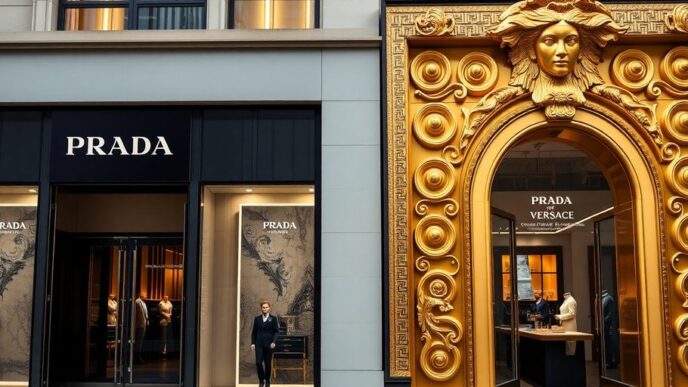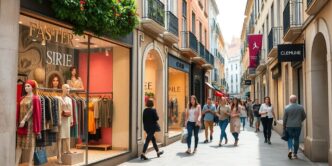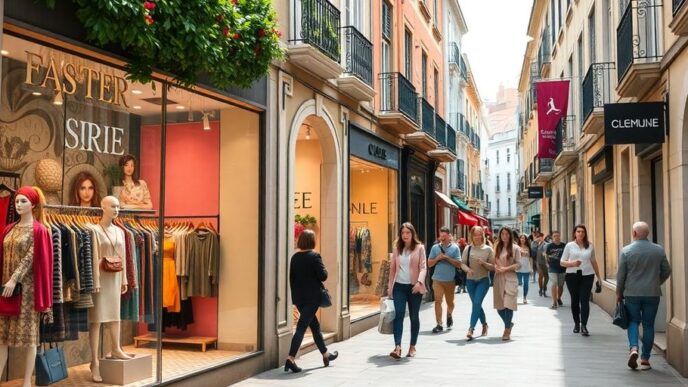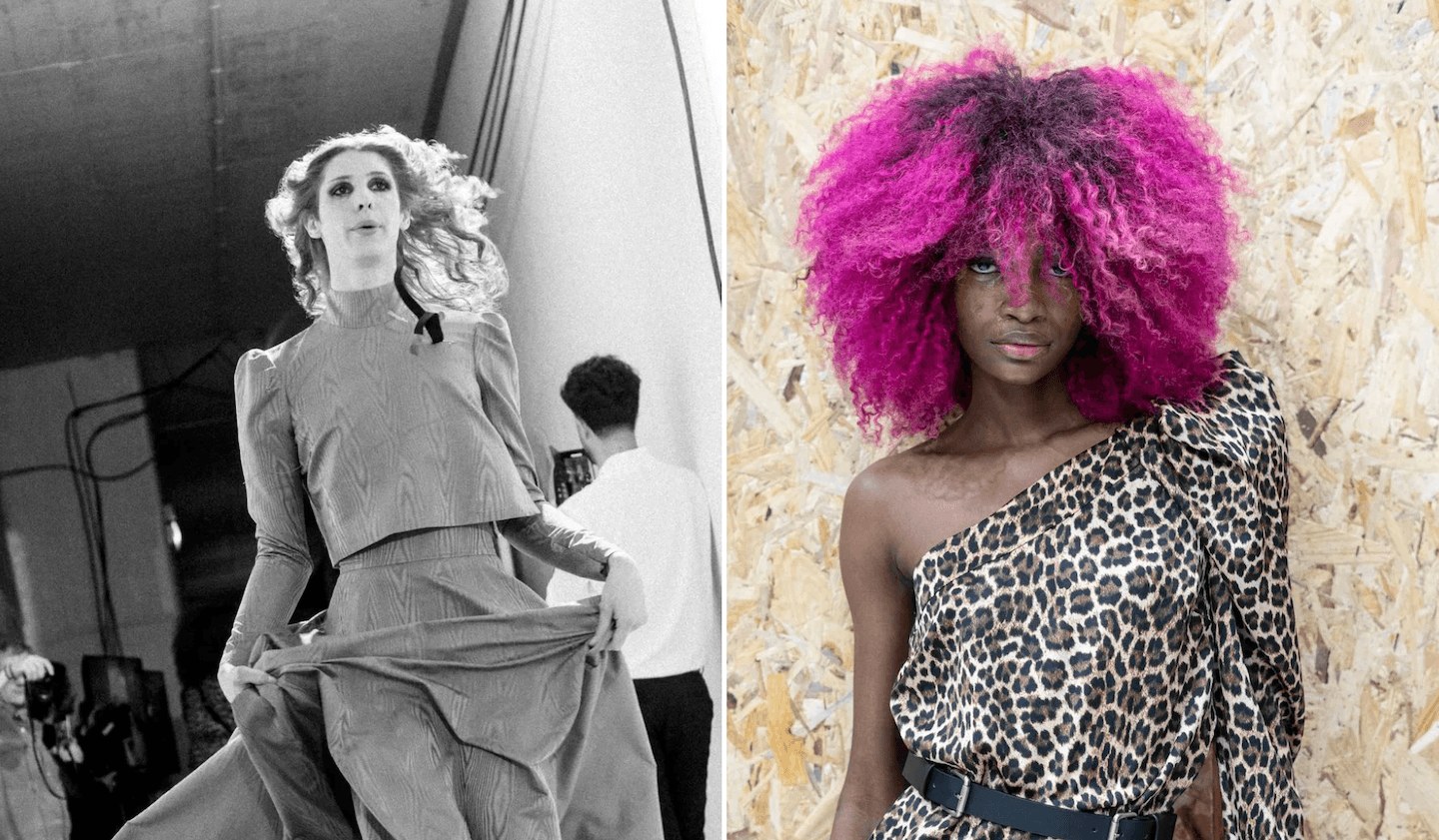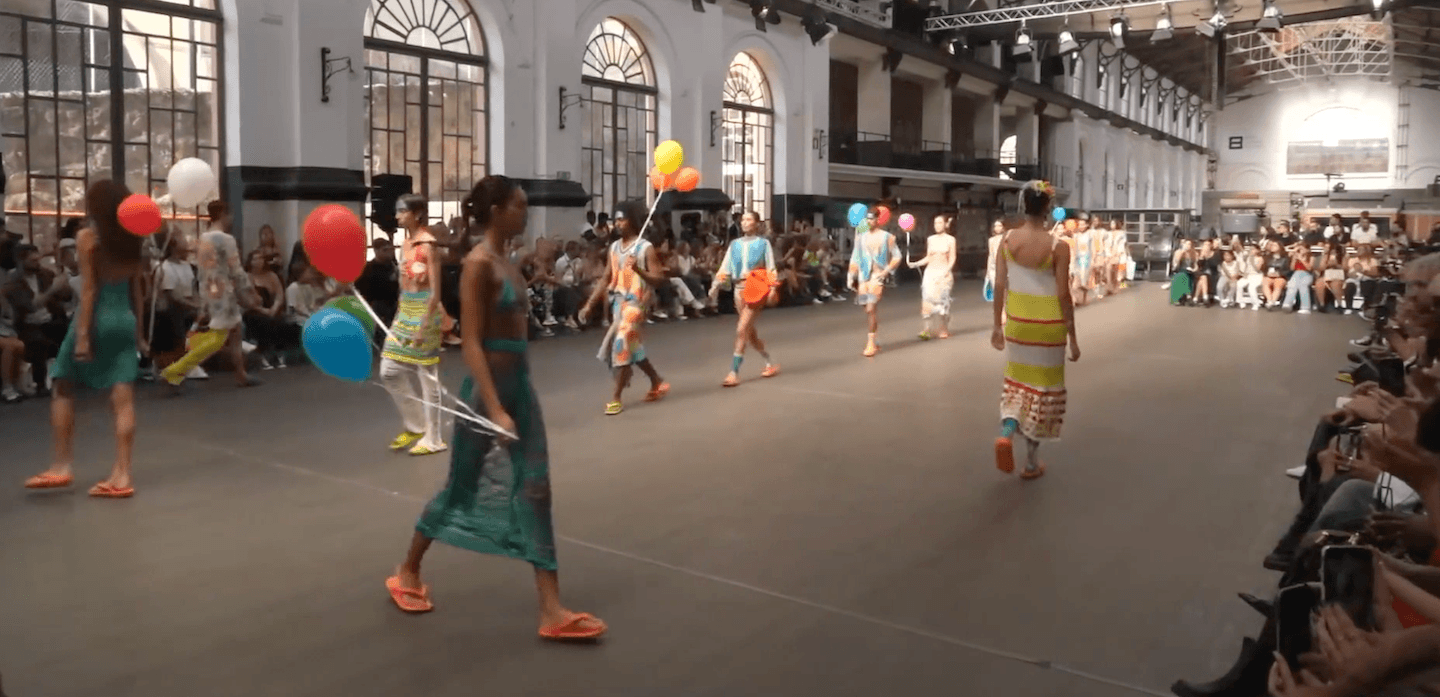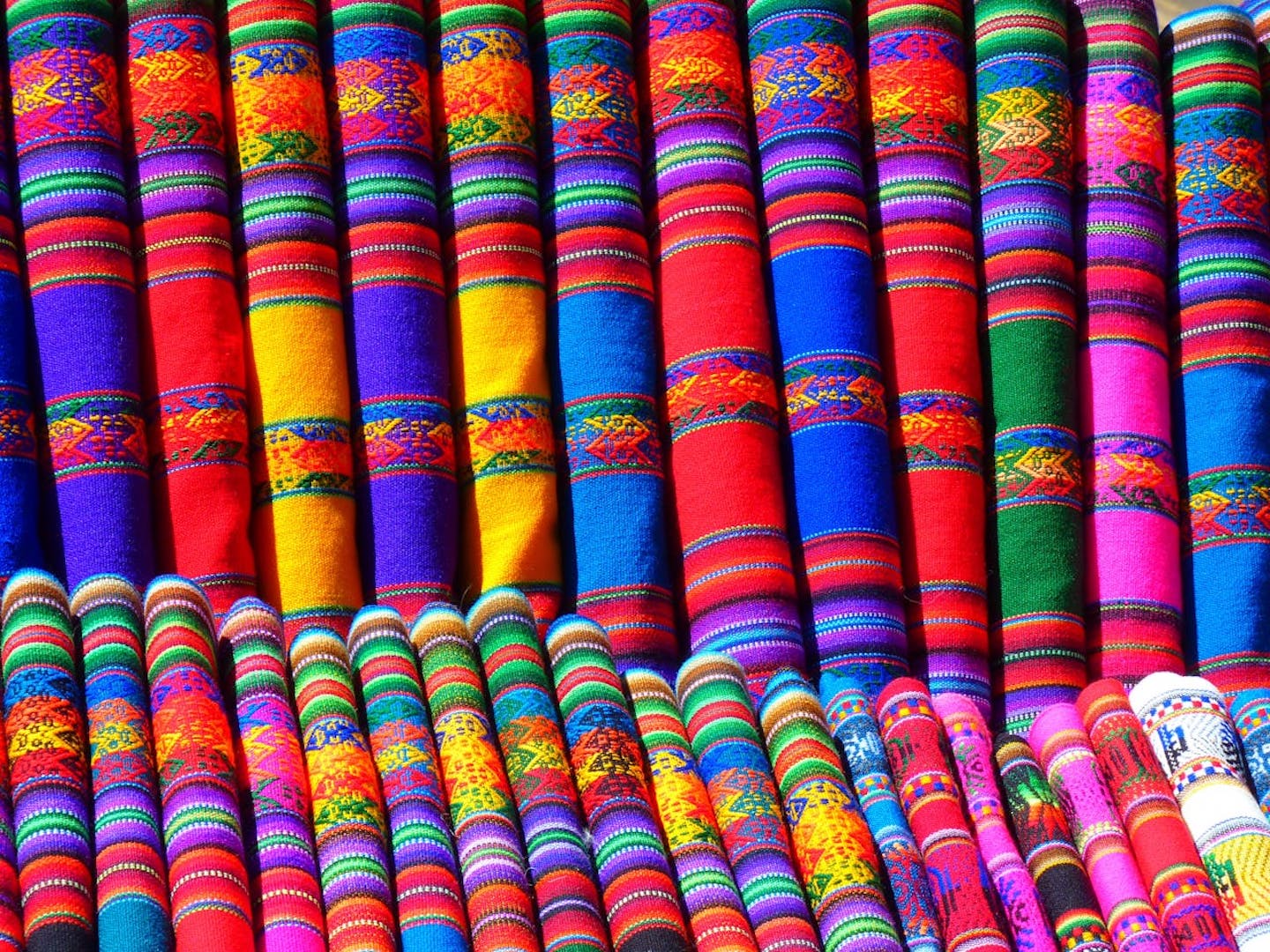The Evolution of Portuguese Fashion
Historical Influences on Portuguese Style
Portuguese fashion has a rich history influenced by various cultures. Some key points include:
- Medieval Era: Clothing was practical, featuring tunics and cloaks.
- Renaissance Influence: The arrival of new fabrics and styles from Europe changed local fashion.
- Colonial Impact: Trade with Africa and Asia introduced exotic materials and designs.
Modern Trends in Portuguese Fashion
Today, Portuguese fashion is vibrant and diverse. Notable trends include:
- Streetwear: Casual and comfortable styles are popular among the youth.
- Sustainable Fashion: Many brands focus on eco-friendly practices.
- Mix of Tradition and Modernity: Designers blend traditional elements with contemporary styles.
Impact of Globalization on Local Designers
Globalization has significantly affected Portuguese fashion:
- Access to International Markets: Local designers can now reach a global audience.
- Cultural Exchange: Influences from around the world enrich local styles.
- Collaboration Opportunities: Partnerships with international brands enhance creativity.
The journey of Portuguese fashion reflects a blend of historical influences and modern trends, showcasing the country’s unique style evolution.
Traditional Portuguese Attire and Its Influence
The Role of Traditional Costumes in Modern Fashion
Traditional Portuguese costumes are not just relics of the past; they play a significant role in contemporary fashion. These costumes often inspire modern designers, leading to a blend of old and new styles. Here are some key points about their influence:
- Cultural Heritage: Many designers incorporate traditional elements to celebrate Portugal’s rich history.
- Fashion Shows: Traditional attire often makes appearances in fashion weeks, showcasing its relevance today.
- Local Pride: Wearing traditional costumes fosters a sense of pride among locals, connecting them to their roots.
Revival of Traditional Fabrics and Patterns
In recent years, there has been a resurgence in the use of traditional fabrics and patterns in fashion. This revival is important for several reasons:
- Sustainability: Using local materials reduces environmental impact and supports local economies.
- Unique Designs: Traditional patterns offer unique aesthetics that stand out in the global fashion market.
- Cultural Identity: Reviving these fabrics helps maintain cultural identity in a rapidly changing world.
Cultural Significance of Portuguese Attire
The cultural significance of traditional Portuguese attire goes beyond mere fashion. It reflects the rich culture of Portugal, showcasing its history, values, and social norms. Traditional clothing often tells stories of the regions they come from, making them a vital part of Portugal’s cultural landscape.
The essence of Portuguese attire lies in its ability to connect generations, reminding us of our roots while inspiring future trends.
Key Portuguese Fashion Designers
Renowned Designers Shaping the Industry
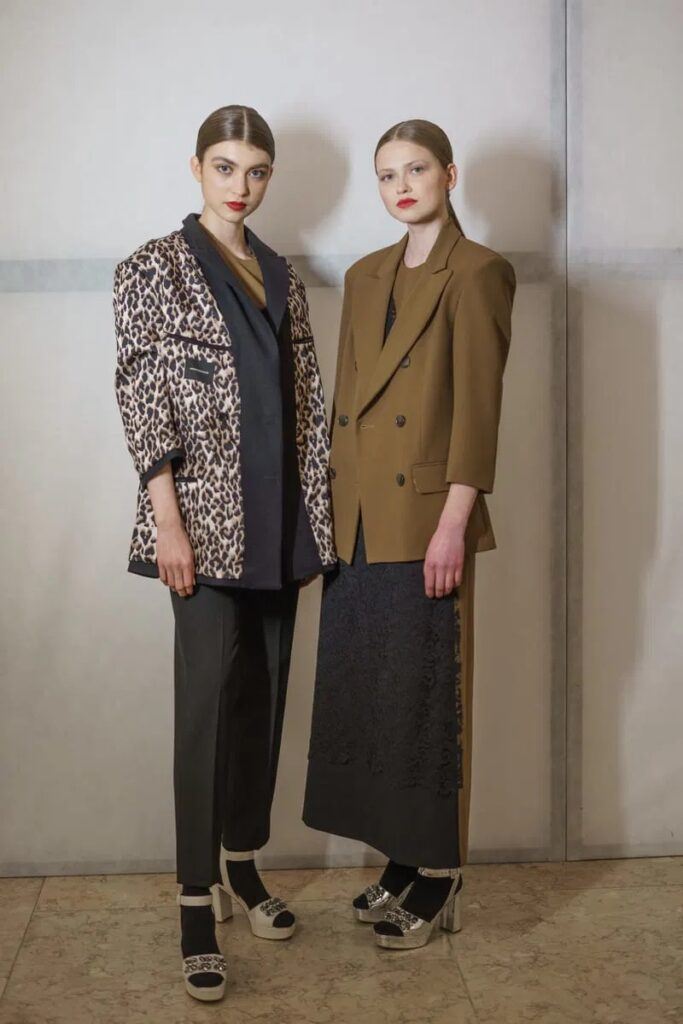
Portugal is home to several famous fashion designers who have made a mark both locally and internationally. Some of the most notable include:
- Ernest W. Baker: Known for its unique blend of vintage and modern styles, this brand has been worn by celebrities like Justin Bieber and Harry Styles.
- Nuno Gama: A designer celebrated for his innovative approach to traditional Portuguese attire, often incorporating local craftsmanship into his collections.
- Ana Salazar: A pioneer in the Portuguese fashion scene, she is recognized for her bold designs and commitment to sustainability.
Emerging Talent in Portuguese Fashion
The fashion scene in Portugal is also seeing a rise in new talent. Young designers are bringing fresh ideas and perspectives, such as:
- David Ferreira: Known for his avant-garde designs that challenge conventional fashion norms.
- Marta Ferreira: A designer focused on sustainable practices, creating eco-friendly collections that appeal to modern consumers.
- Ricardo Preto: Blending traditional techniques with contemporary aesthetics, he is gaining recognition for his unique style.
Influence of Portuguese Designers Internationally
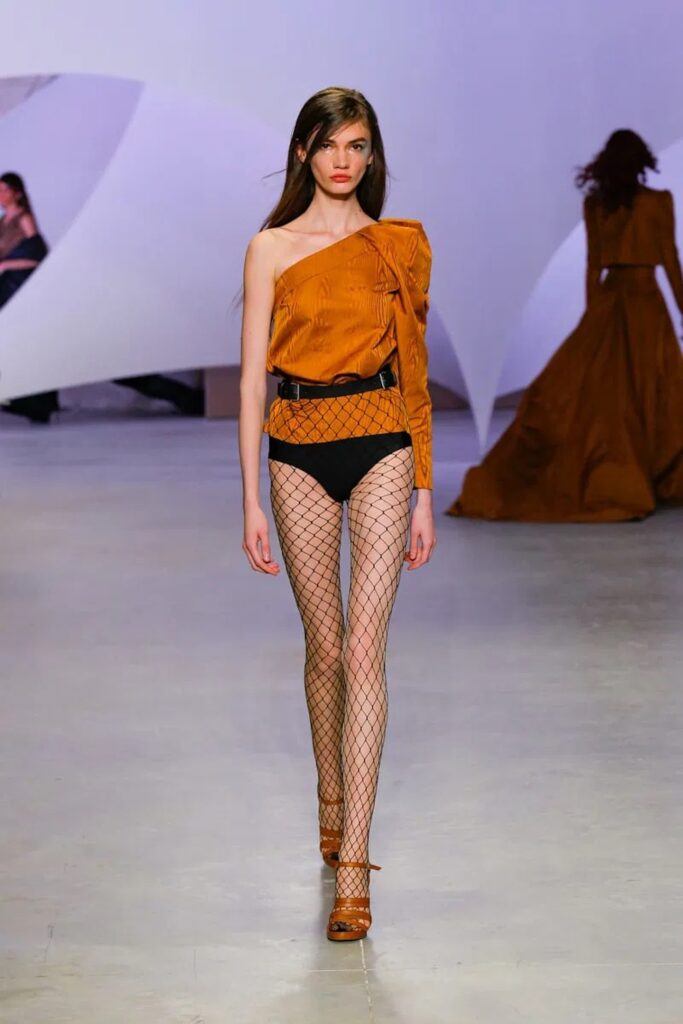
Portuguese designers are increasingly making waves on the global stage. Their influence can be seen in:
- Fashion Weeks: Many designers showcase their work at international events, gaining exposure and recognition.
- Collaborations: Partnerships with global brands help to elevate Portuguese fashion and introduce it to new markets.
- Cultural Exchange: Designers often draw inspiration from their heritage, sharing Portuguese culture through their creations.
The creativity and passion of Portuguese designers are reshaping the fashion landscape, making it a vibrant part of the global industry.
Fashion Weeks and Events in Portugal
Highlights from Portugal Fashion Week
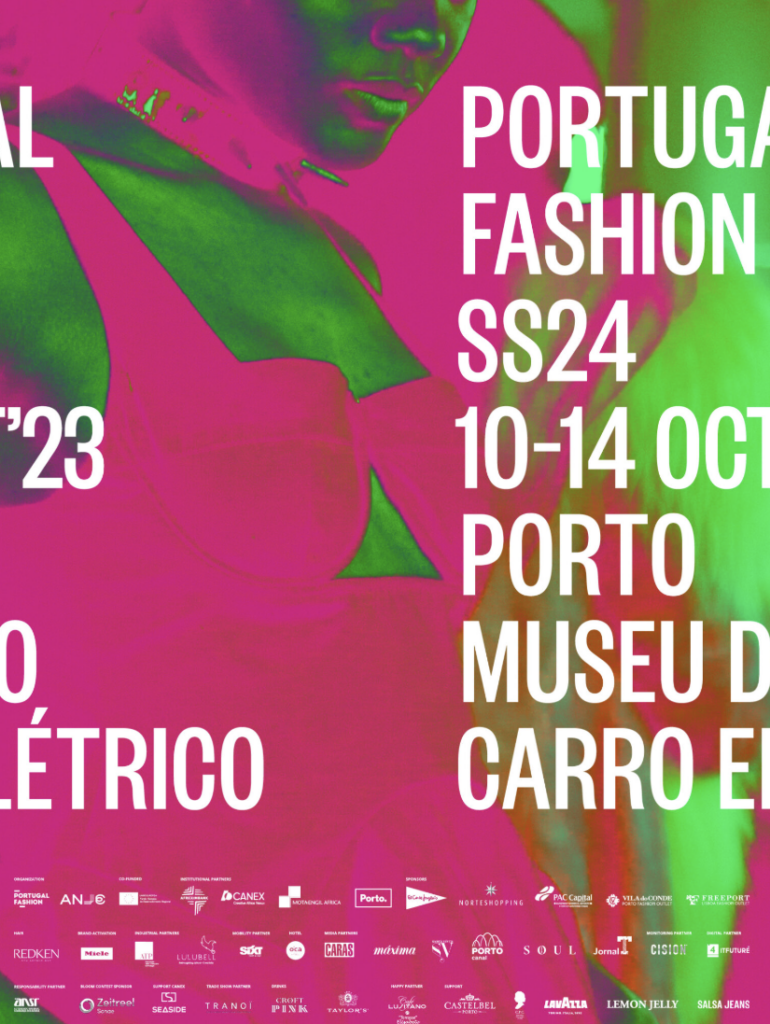
Portugal Fashion Week is a major event that showcases the latest trends and designs from local and international designers. Here are some key points about this exciting event:
- Diverse Collections: Designers present a wide range of styles, from traditional to modern.
- Emerging Talent: The event is a platform for new designers to gain exposure.
- Cultural Fusion: It often features collections that blend Portuguese culture with global influences.
The Rise of Phygital Fashion Shows
Phygital fashion shows combine physical and digital experiences, making them more accessible to a wider audience. Here’s what you need to know:
- Virtual Participation: Attendees can join online, expanding the audience.
- Interactive Elements: Viewers can engage with the show through social media and live chats.
- Sustainability Focus: These shows often emphasize eco-friendly practices in fashion.
Impact of Fashion Events on Local Economy
Fashion events play a significant role in boosting the local economy. Here are some ways they contribute:
- Tourism Boost: Attracts visitors from around the world, increasing hotel and restaurant business.
- Job Creation: Supports local jobs in fashion, hospitality, and event management.
- Brand Promotion: Helps local brands gain recognition and expand their market reach.
Fashion events in Portugal not only celebrate creativity but also significantly contribute to the economy, making them vital for the industry and the community.
Sustainable Fashion Practices in Portugal

Eco-Friendly Brands Leading the Way
Portugal is home to several brands that prioritize sustainability. Here are some notable examples:
- Local Sourcing: Many brands source their materials from local suppliers, reducing transportation emissions.
- Ethical Production: Companies ensure fair wages and safe working conditions for their employees.
- Recycled Materials: Some brands use recycled fabrics to create new clothing, minimizing waste.
Sustainability Initiatives in Portuguese Fashion
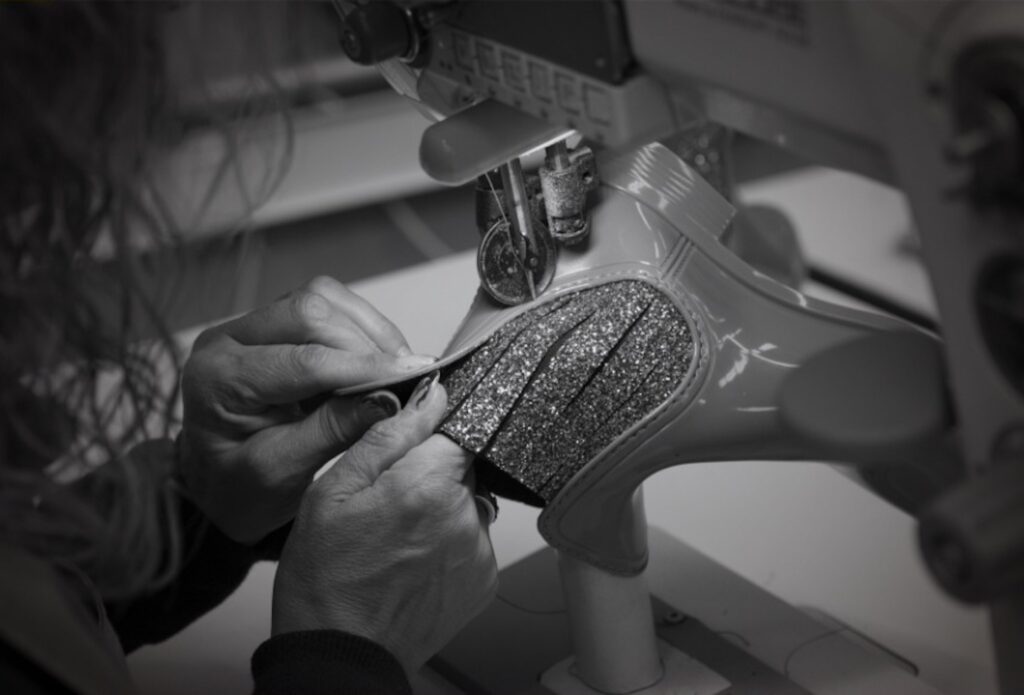
The fashion industry in Portugal is taking steps to become more sustainable. Key initiatives include:
- Green Certifications: Brands are obtaining certifications that prove their commitment to eco-friendly practices.
- Waste Reduction Programs: Many companies are implementing strategies to reduce waste during production.
- Community Engagement: Local designers are collaborating with communities to promote sustainable practices.
Consumer Trends Towards Sustainable Fashion
Consumers in Portugal are increasingly interested in sustainable fashion. This shift is evident in:
- Growing Demand: More shoppers are looking for eco-friendly options when buying clothes.
- Awareness Campaigns: Brands are educating consumers about the importance of sustainability.
- Support for Local Designers: Many people prefer to buy from local designers who focus on sustainable practices.
Portugal is making significant strides in sustainability through innovative practices in the fashion industry. The commitment to eco-friendly materials and ethical production is shaping a brighter future for fashion in the country.
Street Style in Lisbon and Porto

Unique Elements of Lisbon’s Street Fashion
Lisbon’s street fashion is vibrant and diverse, reflecting the city’s rich culture. Here are some key elements:
- Colorful Patterns: Many locals wear bright colors and bold patterns, especially during the summer.
- Mix of Styles: You can see a blend of traditional and modern styles, with people often mixing vintage pieces with contemporary fashion.
- Comfortable Footwear: Given the cobblestone streets, comfortable shoes like sneakers or stylish sandals are popular.
Porto’s Influence on Urban Fashion Trends
Porto has its own unique style that influences urban fashion:
- Layering: Due to the cooler climate, layering is common, with light jackets and scarves being popular choices.
- Artistic Touch: Many Porto residents incorporate artistic elements into their outfits, showcasing local art and design.
- Casual Chic: The style is often casual yet chic, with an emphasis on comfort without sacrificing style.
Street style in Portugal is not just about fashion; it reflects the cultural identity and creativity of its people.
How Street Style Reflects Portuguese Culture

Street style in both Lisbon and Porto is a mirror of Portuguese culture:
- Cultural Heritage: Traditional elements are often woven into modern outfits, showcasing the country’s history.
- Social Statements: Fashion is used as a form of expression, with many wearing clothes that represent their beliefs and values.
- Community Influence: Local neighborhoods often have distinct styles, influenced by the community’s character and history.
Overall, the street style in Lisbon and Porto is a dynamic blend of tradition and modernity, making it a fascinating aspect of Portuguese culture.
Fashion & Style in Portugal’s Coastal Regions
Beachwear Trends in the Algarve
The Algarve is famous for its stunning beaches and warm weather. Here are some popular beachwear trends:
- Lightweight fabrics: Materials like cotton and linen are favored for their breathability.
- Bright colors: Vibrant colors and patterns reflect the lively atmosphere of the region.
- Versatile cover-ups: Sarongs and kaftans are popular for transitioning from beach to bar.

Nautical Influences on Coastal Fashion
Coastal fashion in Portugal often draws inspiration from the sea. Key elements include:
- Stripes: Classic navy and white stripes are a staple, reminiscent of sailors’ attire.
- Marine colors: Shades of blue, white, and sandy beige dominate coastal wardrobes.
- Accessories: Items like sailor hats and rope belts add a nautical touch to outfits.
Adapting Fashion to Coastal Climates
The coastal climate can be unpredictable, so locals adapt their fashion choices accordingly:
- Layering: Light layers are essential for cool evenings by the sea.
- Footwear: Comfortable sandals or espadrilles are preferred for walking on sandy beaches.
- Windbreakers: A light jacket is handy for breezy days along the coast.
The coastal regions of Portugal showcase a unique blend of traditional and modern styles, making fashion a vibrant part of life by the sea.
In summary, fashion in Portugal’s coastal areas is all about comfort, style, and adapting to the beautiful yet sometimes unpredictable weather.
Footwear Trends in Portugal
Popular Shoe Styles Among Locals
In Portugal, footwear is not just about comfort; it’s also about style. Here are some popular shoe styles you’ll find:
- Sneakers: Perfect for walking around cities like Lisbon and Porto.
- Boots: Great for rainy days and provide good support.
- Sandals: Ideal for the beach and warm weather.

Influence of Portuguese Footwear Brands
Portuguese footwear brands are known for their quality and design. Some key points include:
- Artisanal Craftsmanship: Many shoes are handmade, showcasing traditional techniques.
- Sustainable Practices: Brands are increasingly focusing on eco-friendly materials.
- Global Reach: Portuguese footwear is gaining popularity worldwide, with exports growing.
Footwear for Portugal’s Diverse Landscapes
When visiting Portugal, consider the following footwear options:
- Walking Boots: Essential for exploring hilly areas and cobblestone streets.
- Flip Flops: Great for the beach and casual outings.
- Stylish Flats: Perfect for evenings out without sacrificing comfort.
In Portugal, the footwear market is projected to grow by -1.59% from 2024 to 2029, indicating a shift in consumer preferences and trends.
Overall, choosing the right footwear is crucial for enjoying all that Portugal has to offer, from its beautiful cities to its stunning coastlines.
Accessories and Jewelry in Portuguese Fashion

Traditional Portuguese Jewelry Styles
Portuguese jewelry is known for its unique designs and craftsmanship. Some traditional styles include:
- Filigree: This intricate technique involves twisting fine threads of gold or silver to create delicate patterns.
- Cameos: Often carved from shell or stone, these pieces depict portraits or scenes and are a classic choice.
- Azulejos: Jewelry inspired by the famous blue and white tiles of Portugal, often featuring colorful designs.
Modern Trends in Fashion Accessories
Today, accessories in Portugal reflect both tradition and modernity. Popular trends include:
- Sustainable Materials: Many designers are using eco-friendly materials to create stylish pieces.
- Bold Statement Pieces: Large earrings and chunky necklaces are in vogue, adding flair to any outfit.
- Minimalist Designs: Simple, elegant pieces that can be worn daily are gaining popularity.
Role of Accessories in Portuguese Outfits
Accessories play a crucial role in completing a look. They can:
- Enhance the overall outfit, making it more stylish.
- Reflect personal style and cultural heritage.
- Be functional, such as bags and hats that are both practical and fashionable.
Accessories in Portuguese fashion are not just add-ons; they are essential elements that tell a story about culture and identity.
In conclusion, the world of accessories and jewelry in Portugal is vibrant and diverse, showcasing a blend of traditional craftsmanship and modern innovation. Whether it’s a piece of filigree jewelry or a bold statement necklace, these items are integral to the Portuguese fashion scene.
Fashion Retail and Shopping Destinations in Portugal
Top Fashion Boutiques in Lisbon
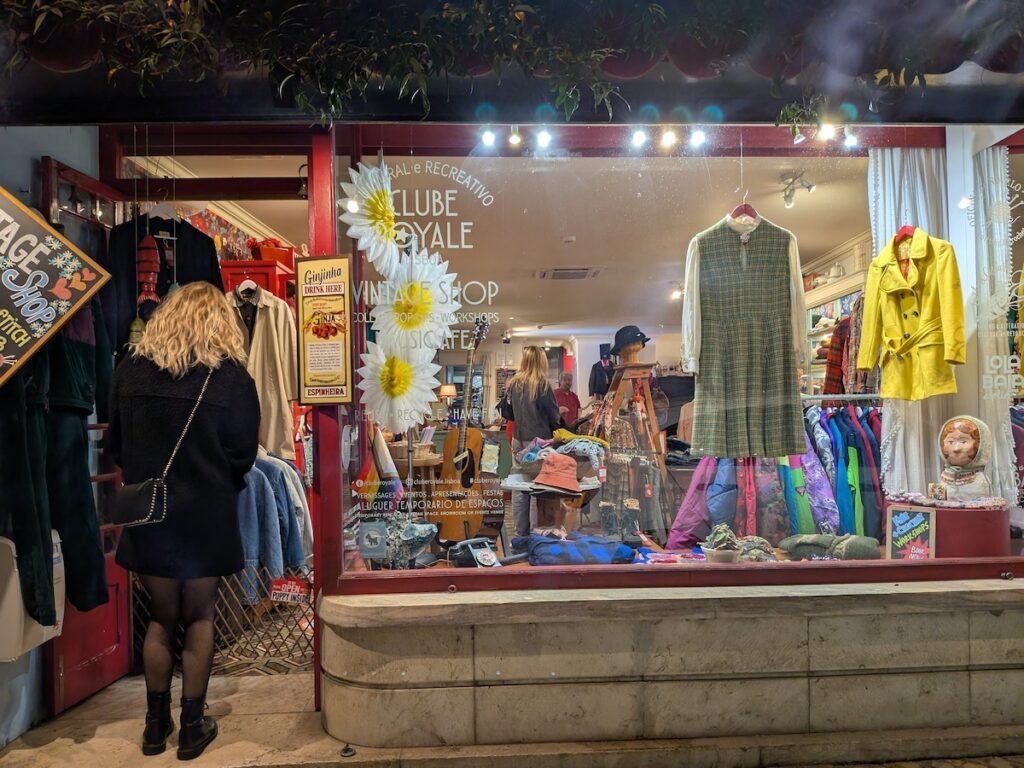
Lisbon is home to many unique fashion boutiques that showcase both local and international designers. Here are some must-visit spots:
- A Vida Portuguesa: This store offers a range of traditional Portuguese products, including clothing and accessories.
- Embaixada: Located in a historic building, this boutique features a collection of local designers and brands.
- Rua Garrett: A street filled with various shops, perfect for finding trendy outfits and unique pieces.
Shopping Experiences in Porto
Porto also has a vibrant shopping scene. Here are some highlights:
- Mercado do Bolhão: A traditional market where you can find local crafts and fashion items.
- Avenida da Boavista: This avenue is lined with shops offering both high-end and affordable fashion.
- Rua de Santa Catarina: A popular shopping street with a mix of local boutiques and international brands.
Impact of Tourism on Fashion Retail
Tourism plays a significant role in shaping the fashion retail landscape in Portugal. The influx of visitors has led to:
- Increased demand for local fashion brands.
- Growth of pop-up shops and markets showcasing Portuguese designers.
- A rise in sustainable fashion options as tourists seek eco-friendly products.
The blend of traditional and modern styles in Portuguese fashion retail reflects the country’s rich cultural heritage and contemporary trends.
Whether you’re in Lisbon or Porto, exploring the local boutiques and markets is a great way to experience the unique fashion scene in Portugal.
Fashion Education and Innovation in Portugal
Leading Fashion Schools and Programs
Portugal is home to several prestigious fashion schools that nurture the next generation of designers. Some of the most notable include:
- Escola Superior de Moda in Porto, known for its hands-on approach.
- Universidade da Beira Interior, which offers a comprehensive fashion design program.
- IADE Creative University, focusing on innovation in fashion.
Innovative Fashion Technologies in Portugal
The fashion industry in Portugal is embracing new technologies to enhance creativity and efficiency. Key innovations include:
- 3D Printing: Used for creating unique fashion pieces and accessories.
- Sustainable Materials: Development of eco-friendly fabrics that reduce environmental impact.
- Digital Design Tools: Software that allows designers to visualize their creations before production.
Collaborations Between Designers and Academia
Collaboration between fashion designers and educational institutions is vital for innovation. This partnership leads to:
- Workshops where students learn directly from industry professionals.
- Internship Programs that provide real-world experience.
- Research Projects focusing on sustainable practices and new technologies.
The digital fashion group, founded in 2020, is a European-led collaboration between fashion academics and industry innovators working to equip fashion professionals and educators.
These efforts are shaping a vibrant fashion scene in Portugal, blending tradition with modernity and sustainability.




